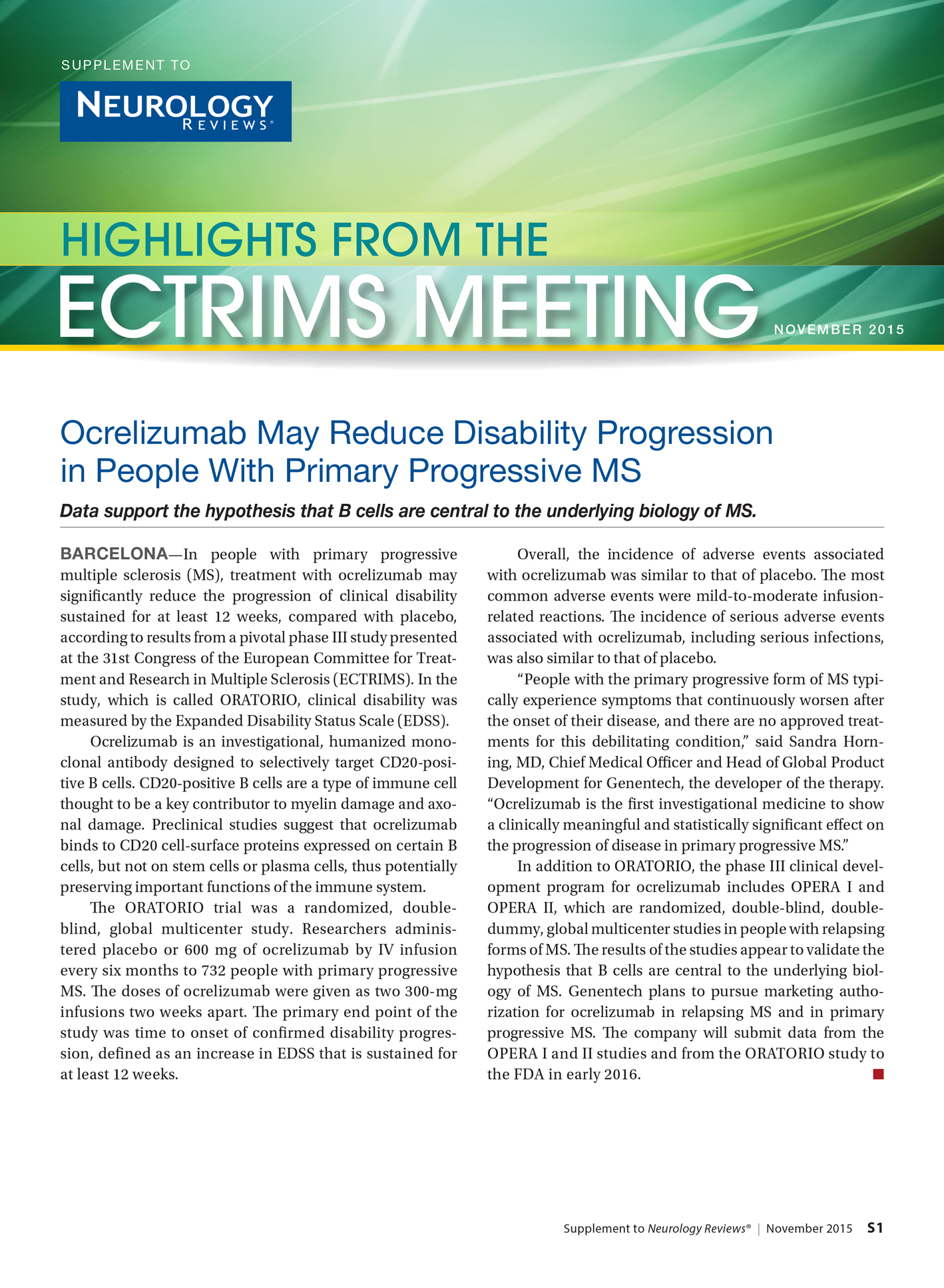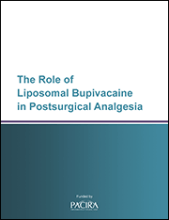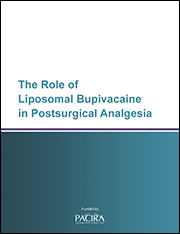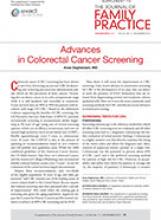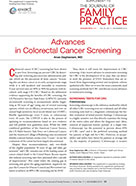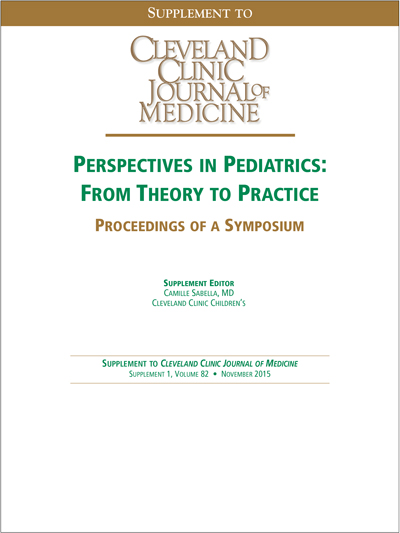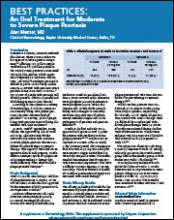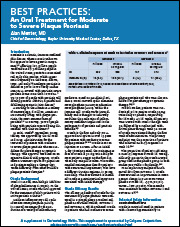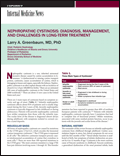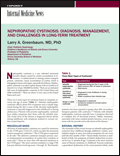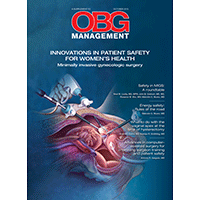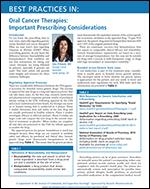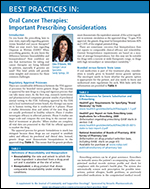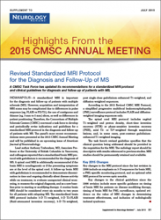User login
The Power of Art in Medicine: The Patient Listening Project
[[{"attributes":{},"fields":{}}]]
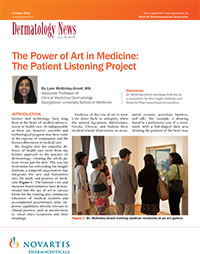
Author
Lynn McKinley-Grant, MD
Associate Professor of Clinical Medicine/Dermatology
Georgetown University School of Medicine
Dr. McKinley-Grant discloses that she is a consultant for the Insight Institute and Novartis Pharmaceuticals Corporation.
Link
Click here to download this supplement.
12/15 XDP-1319483
[[{"attributes":{},"fields":{}}]]

Author
Lynn McKinley-Grant, MD
Associate Professor of Clinical Medicine/Dermatology
Georgetown University School of Medicine
Dr. McKinley-Grant discloses that she is a consultant for the Insight Institute and Novartis Pharmaceuticals Corporation.
Link
Click here to download this supplement.
12/15 XDP-1319483
[[{"attributes":{},"fields":{}}]]

Author
Lynn McKinley-Grant, MD
Associate Professor of Clinical Medicine/Dermatology
Georgetown University School of Medicine
Dr. McKinley-Grant discloses that she is a consultant for the Insight Institute and Novartis Pharmaceuticals Corporation.
Link
Click here to download this supplement.
12/15 XDP-1319483
Highlights From the 2015 ECTRIMS Annual Meeting
Click here to download the PDF.
Click here to download the PDF.
Click here to download the PDF.
The Role of Liposomal Bupivacaine in Postsurgical Analgesia
Advances in Colorectal Cancer Screening
Colorectal cancer (CRC) screening has been shown to save lives. Screening can prevent CRC by detecting and removing precancerous adenomatous polyps, which are the precursors of most cancers.1 Screening also can detect cancer at an early, asymptomatic stage while it is still localized and amenable to treatment; 5-year survival rates are 80% to 90% for patients with localized, early stage I/II CRC.2
Colorectal cancer (CRC) screening has been shown to save lives. Screening can prevent CRC by detecting and removing precancerous adenomatous polyps, which are the precursors of most cancers.1 Screening also can detect cancer at an early, asymptomatic stage while it is still localized and amenable to treatment; 5-year survival rates are 80% to 90% for patients with localized, early stage I/II CRC.2
Colorectal cancer (CRC) screening has been shown to save lives. Screening can prevent CRC by detecting and removing precancerous adenomatous polyps, which are the precursors of most cancers.1 Screening also can detect cancer at an early, asymptomatic stage while it is still localized and amenable to treatment; 5-year survival rates are 80% to 90% for patients with localized, early stage I/II CRC.2
Perspectives in Pediatrics: From Theory to Practice
Supplement Editor:
Camille Sabella, MD
Contents
ADHD and behavioral disorders: Assessment, management, and an update from DSM-5
Joseph Austerman, DO
Use of long-acting reversible contraceptives to reduce the rate of teen pregnancy
Ellen Rome, MD, MPH
RSV infections: State of the art
Giovanni Piedimonte, MD
Dermatology for the pediatrician: Advances in diagnosis and treatment of common and not-so-common skin conditions
Joan Tamburro, DO
Learning disorders: How pediatricians can help
Elain E. Schulte, MD, MPH
Developmental delays and autism: Screening and surveillance
Carol Delahunty, MD
Supplement Editor:
Camille Sabella, MD
Contents
ADHD and behavioral disorders: Assessment, management, and an update from DSM-5
Joseph Austerman, DO
Use of long-acting reversible contraceptives to reduce the rate of teen pregnancy
Ellen Rome, MD, MPH
RSV infections: State of the art
Giovanni Piedimonte, MD
Dermatology for the pediatrician: Advances in diagnosis and treatment of common and not-so-common skin conditions
Joan Tamburro, DO
Learning disorders: How pediatricians can help
Elain E. Schulte, MD, MPH
Developmental delays and autism: Screening and surveillance
Carol Delahunty, MD
Supplement Editor:
Camille Sabella, MD
Contents
ADHD and behavioral disorders: Assessment, management, and an update from DSM-5
Joseph Austerman, DO
Use of long-acting reversible contraceptives to reduce the rate of teen pregnancy
Ellen Rome, MD, MPH
RSV infections: State of the art
Giovanni Piedimonte, MD
Dermatology for the pediatrician: Advances in diagnosis and treatment of common and not-so-common skin conditions
Joan Tamburro, DO
Learning disorders: How pediatricians can help
Elain E. Schulte, MD, MPH
Developmental delays and autism: Screening and surveillance
Carol Delahunty, MD
BEST PRACTICES: An Oral Treatment for Moderate to Severe Plaque Psoriasis
A Best Practices Supplement to Dermatology News. This supplement was sponsored by Celgene Corporation.
Faculty/Faculty Disclosures
Alan Menter, MD
Baylor University Medical Center
Dallas, TX
Dr Menter is on the advisory board for AbbVie, Allergan, Amgen, Boehringer Ingelheim, Eli Lilly, Genentech Inc., Janssen Biotech, Inc., LEO Pharma and Pfizer; is a consultant for AbbVie, Allergan, Amgen, Convoy Therapeutics, Inc., Eli Lilly, Janssen Biotech, Inc., LEO Pharma, Novartis, Pfizer, Syntrix, Vitae, Wyeth and XenoPort; is an investigator for AbbVie, Allergan, Amgen, Boehringer Ingelheim, Celgene, Eli Lilly, Genentech, Janssen Biotech, Inc., LEO Pharma, Merck, Novartis, Pfizer, Symbio/Maruho, Syntrix and Wyeth; is a speaker for AbbVie, Amgen, Janssen Biotech, Inc., LEO Pharma and Wyeth; has received grant funds from AbbVie, Allergan, Amgen, Boehringer Ingelheim, Celgene, Genentech, Janssen Biotech, Inc., LEO Pharma, Merck, Novartis, Pfizer, Symbio/Maruho and Syntrix; and has received honoraria from AbbVie, Allergan, Amgen, Boehringer Ingelheim, Convoy Therapeutics, Inc., Eli Lilly, Genentech, Janssen Biotech, Inc., LEO Pharma, Novartis, Pfizer, Syntrix, Vitae, Wyeth and XenoPort.
Copyright © by Frontline Medical Communications Inc.
A Best Practices Supplement to Dermatology News. This supplement was sponsored by Celgene Corporation.
Faculty/Faculty Disclosures
Alan Menter, MD
Baylor University Medical Center
Dallas, TX
Dr Menter is on the advisory board for AbbVie, Allergan, Amgen, Boehringer Ingelheim, Eli Lilly, Genentech Inc., Janssen Biotech, Inc., LEO Pharma and Pfizer; is a consultant for AbbVie, Allergan, Amgen, Convoy Therapeutics, Inc., Eli Lilly, Janssen Biotech, Inc., LEO Pharma, Novartis, Pfizer, Syntrix, Vitae, Wyeth and XenoPort; is an investigator for AbbVie, Allergan, Amgen, Boehringer Ingelheim, Celgene, Eli Lilly, Genentech, Janssen Biotech, Inc., LEO Pharma, Merck, Novartis, Pfizer, Symbio/Maruho, Syntrix and Wyeth; is a speaker for AbbVie, Amgen, Janssen Biotech, Inc., LEO Pharma and Wyeth; has received grant funds from AbbVie, Allergan, Amgen, Boehringer Ingelheim, Celgene, Genentech, Janssen Biotech, Inc., LEO Pharma, Merck, Novartis, Pfizer, Symbio/Maruho and Syntrix; and has received honoraria from AbbVie, Allergan, Amgen, Boehringer Ingelheim, Convoy Therapeutics, Inc., Eli Lilly, Genentech, Janssen Biotech, Inc., LEO Pharma, Novartis, Pfizer, Syntrix, Vitae, Wyeth and XenoPort.
Copyright © by Frontline Medical Communications Inc.
A Best Practices Supplement to Dermatology News. This supplement was sponsored by Celgene Corporation.
Faculty/Faculty Disclosures
Alan Menter, MD
Baylor University Medical Center
Dallas, TX
Dr Menter is on the advisory board for AbbVie, Allergan, Amgen, Boehringer Ingelheim, Eli Lilly, Genentech Inc., Janssen Biotech, Inc., LEO Pharma and Pfizer; is a consultant for AbbVie, Allergan, Amgen, Convoy Therapeutics, Inc., Eli Lilly, Janssen Biotech, Inc., LEO Pharma, Novartis, Pfizer, Syntrix, Vitae, Wyeth and XenoPort; is an investigator for AbbVie, Allergan, Amgen, Boehringer Ingelheim, Celgene, Eli Lilly, Genentech, Janssen Biotech, Inc., LEO Pharma, Merck, Novartis, Pfizer, Symbio/Maruho, Syntrix and Wyeth; is a speaker for AbbVie, Amgen, Janssen Biotech, Inc., LEO Pharma and Wyeth; has received grant funds from AbbVie, Allergan, Amgen, Boehringer Ingelheim, Celgene, Genentech, Janssen Biotech, Inc., LEO Pharma, Merck, Novartis, Pfizer, Symbio/Maruho and Syntrix; and has received honoraria from AbbVie, Allergan, Amgen, Boehringer Ingelheim, Convoy Therapeutics, Inc., Eli Lilly, Genentech, Janssen Biotech, Inc., LEO Pharma, Novartis, Pfizer, Syntrix, Vitae, Wyeth and XenoPort.
Copyright © by Frontline Medical Communications Inc.
Nephropathic Cystinosis: Diagnosis, Management, and Challenges in Long-term Treatment
A supplement to Internal Medicine News.
Faculty
Larry A. Greenbaum, MD, PhD
Chief, Pediatric Nephrology
Children's Healthcare of Atlanta and
Emory University
Professor of Pediatrics
Department of Pediatrics
Emory University School of Medicine
A supplement supported by an educational grant from Raptor Pharmaceuticals Inc.
A supplement to Internal Medicine News.
Faculty
Larry A. Greenbaum, MD, PhD
Chief, Pediatric Nephrology
Children's Healthcare of Atlanta and
Emory University
Professor of Pediatrics
Department of Pediatrics
Emory University School of Medicine
A supplement supported by an educational grant from Raptor Pharmaceuticals Inc.
A supplement to Internal Medicine News.
Faculty
Larry A. Greenbaum, MD, PhD
Chief, Pediatric Nephrology
Children's Healthcare of Atlanta and
Emory University
Professor of Pediatrics
Department of Pediatrics
Emory University School of Medicine
A supplement supported by an educational grant from Raptor Pharmaceuticals Inc.
Innovations in patient safety for women's health: Minimally invasive gynecologic surgery
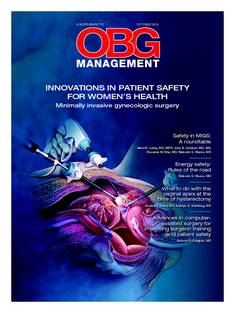
Click here to download the PDF.
Every surgeon knows that, if you operate, complications will follow. Surgeons are perfectionists and strive to reduce complications through years of diligent personal training and continuous quality improvement. Surgeons hate complications, especially those that might be preventable (such as retained foreign bodies, wrong site surgery, and medication errors).
In this special issue of OBG Management, world-renowned experts focus on topical issues in safety in minimally invasive gynecologic surgery (MIGS). In a roundtable, Drs. Neal Lonky, John Gebhart, Rosanne Kho, and Malcolm Munro discuss important issues in MIGS, including the need to prioritize the vaginal and laparoscopic routes of hysterectomy and the role of single-port surgery. In a concise yet detailed discussion of safety issues related to radiofrequency and ultrasound energy devices, Dr. Munro alerts us to the dangers of heat injury and direct and capacitative coupling. Drs. Andrew Sokol and Katelyn Smithling provide guidance on preventing apical prolapse of the vagina following hysterectomy. And Dr. Antonio Gargiulo explores the rapidly expanding role of simulation training with computer-assisted (robotic) surgical simulators and predicts that, instead of learning surgery on patients, future trainees will gain skills in a simulation environment.
We thank the master surgeons who participated in this special issue for providing guidance and helping us to reduce complications. Our patients are the beneficiaries of the wisdom provided herein.
>>Robert L. Barbieri, MD
Editor in Chief, OBG Management
To view the video, "McCall" culdoplasty technique by Mickey Karram, MD, that accompanies the article by Sokol et al in this supplement, click here.

Click here to download the PDF.
Every surgeon knows that, if you operate, complications will follow. Surgeons are perfectionists and strive to reduce complications through years of diligent personal training and continuous quality improvement. Surgeons hate complications, especially those that might be preventable (such as retained foreign bodies, wrong site surgery, and medication errors).
In this special issue of OBG Management, world-renowned experts focus on topical issues in safety in minimally invasive gynecologic surgery (MIGS). In a roundtable, Drs. Neal Lonky, John Gebhart, Rosanne Kho, and Malcolm Munro discuss important issues in MIGS, including the need to prioritize the vaginal and laparoscopic routes of hysterectomy and the role of single-port surgery. In a concise yet detailed discussion of safety issues related to radiofrequency and ultrasound energy devices, Dr. Munro alerts us to the dangers of heat injury and direct and capacitative coupling. Drs. Andrew Sokol and Katelyn Smithling provide guidance on preventing apical prolapse of the vagina following hysterectomy. And Dr. Antonio Gargiulo explores the rapidly expanding role of simulation training with computer-assisted (robotic) surgical simulators and predicts that, instead of learning surgery on patients, future trainees will gain skills in a simulation environment.
We thank the master surgeons who participated in this special issue for providing guidance and helping us to reduce complications. Our patients are the beneficiaries of the wisdom provided herein.
>>Robert L. Barbieri, MD
Editor in Chief, OBG Management
To view the video, "McCall" culdoplasty technique by Mickey Karram, MD, that accompanies the article by Sokol et al in this supplement, click here.

Click here to download the PDF.
Every surgeon knows that, if you operate, complications will follow. Surgeons are perfectionists and strive to reduce complications through years of diligent personal training and continuous quality improvement. Surgeons hate complications, especially those that might be preventable (such as retained foreign bodies, wrong site surgery, and medication errors).
In this special issue of OBG Management, world-renowned experts focus on topical issues in safety in minimally invasive gynecologic surgery (MIGS). In a roundtable, Drs. Neal Lonky, John Gebhart, Rosanne Kho, and Malcolm Munro discuss important issues in MIGS, including the need to prioritize the vaginal and laparoscopic routes of hysterectomy and the role of single-port surgery. In a concise yet detailed discussion of safety issues related to radiofrequency and ultrasound energy devices, Dr. Munro alerts us to the dangers of heat injury and direct and capacitative coupling. Drs. Andrew Sokol and Katelyn Smithling provide guidance on preventing apical prolapse of the vagina following hysterectomy. And Dr. Antonio Gargiulo explores the rapidly expanding role of simulation training with computer-assisted (robotic) surgical simulators and predicts that, instead of learning surgery on patients, future trainees will gain skills in a simulation environment.
We thank the master surgeons who participated in this special issue for providing guidance and helping us to reduce complications. Our patients are the beneficiaries of the wisdom provided herein.
>>Robert L. Barbieri, MD
Editor in Chief, OBG Management
To view the video, "McCall" culdoplasty technique by Mickey Karram, MD, that accompanies the article by Sokol et al in this supplement, click here.
BEST PRACTICES IN: Oral Cancer Therapies: Important Prescribing Considerations
Highlights From the 2015 CMSC Annual Meeting
Click here to download the PDF.
Click here to download the PDF.
Click here to download the PDF.

